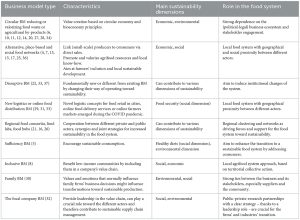Exploring Beyond Stocks and Bonds
3 min read
Alternative investments offer a compelling risk-reward profile and can add significantly to portfolio diversification, but it’s important to conduct extensive research before investing any capital into any alternative investment vehicle.
Alternative investments, which include private equity, hedge funds, commodities, real estate and collectibles are often subject to longer lockup periods 카지노방위대 and are more illiquid than their traditional counterparts.
1. Real Estate
Real estate has long been one of the premier alternative investments, offering reliable cash flows proportional to its value. Investors can participate in this investment by purchasing rental properties, investing through real estate investment trusts (REITs) or crowdfunding platforms.
Real estate typically outperforms bonds due to its return on equity; bonds typically pay only a fixed interest rate and have limited growth potential compared to real estate’s potential for expansion.
However, alternative investments often feature high degrees of illiquidity which makes reviewing performance more complex than with traditional assets due to traditional risk and return metrics being rarely applicable for these alternatives. A variety of valuation models may be needed in order to evaluate alternative assets properly while there are also different tax implications associated with these assets.
2. Private Equity
With traditional markets awash in volatility, more investors are turning to alternative investments as alternatives become increasingly attractive. Unfortunately, due to industry restrictions focused on cultivating relationships with institutional investors only high net-worth individuals meeting minimum investment requirements of $500,000 can access alternative investments.
New digital platforms and channels now make it possible for mainstream individual investors to access an array of alternative investments such as real estate, private equity, hedge funds, commodities, collectibles and more. These investments may offer potential for enhanced diversification, reduced risk and higher returns in today’s challenging market – many also feature low correlation with other asset classes making them potentially effective inflation hedges.
3. Hedge Funds
Alternative investments offer a vital way of diversifying and protecting portfolios against volatility. From funding tech start-ups, real estate investments or tangible asset purchases; alternative investments offer diversification for your holdings as well as hedge against volatility.
Alternative investment strategies typically have low correlations to public market volatility, providing opportunities for greater returns and acting as an inflation hedge.
Alternative investments may also be highly illiquid and take longer for any tangible returns to be realized, making evaluation difficult due to complex valuations or trading structures that make evaluation difficult. Furthermore, alternative investments may cost more due to management fees or performance-based compensation packages.
4. Commodities
Commodities are tangible natural assets such as energy (oil and gas), agricultural products like wheat and corn, metals like gold or industrial metals and much more that act as an inflation hedge and do not respond as heavily to market movements as stocks or bonds do.
Investment in commodities requires you to fully understand their market dynamics and intricacies, and can require much larger minimum investments (often hundreds of millions). Often these assets are less liquid than traditional investments such as stocks or bonds and usually require greater understanding before entering them into an investment portfolio.
As investors, we often don’t have the luxury of physically owning commodities (like oil, grains or precious metals ). Instead, another viable way of investing is buying shares of companies producing commodities and reaping some of their profit if their prices increase.
5. Collectibles
Most individuals understand investing through traditional assets such as stocks, bonds, mutual funds, ETFs and cash; however there is much more available in the market than this traditional way.
Alternative investments can be an excellent way to diversify your portfolio. Their low correlation with traditional assets like stocks means that when stock markets crash or recession hits, alternative investments tend to remain steady in value and won’t fall as dramatically in price.
Before adding alternative investments to your portfolio, it is important to assess your investing style, risk tolerance and liquidity needs before beginning to make decisions on alternative investments. Many alternative investments can also be illiquid, making them hard to sell without incurring high fees or losing their value; this is particularly true with hedge funds and private equity investments.






